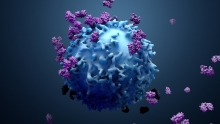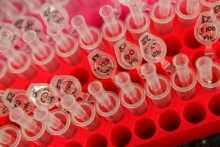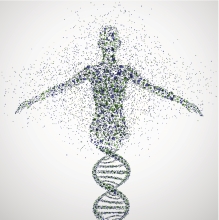Phosphatases of regenerating liver (PRLs) are a family of enigmatic proteins involved in cell growth and metabolism present in various species. From humans to fruit flies, they play a unique role in the growth of cancerous tumours and the spread of cancer throughout the body. New research emerging from McGill University is contributing to what is known about PRLs, which could potentially become an important tool in the development of cancer-fighting treatments.


What makes the elderly and people with underlying conditions more vulnerable to COVID-19? According to a new study led by McGill University researchers, clues can be found in the proteins involved in initiating infection, as the virus binds to host cells of different animals. Greater cellular oxidation with aging and sickness may explain why seniors and people with chronic illness get infected more often and more severely.
Using a new microscopic "fishing" technique, scientists from the Montreal Clinical Research Institute (IRCM), Université de Montréal and McGill University have successfully snagged thousands of proteins that play a key role in the formation of the cell skeletons or cytoskeletons. Cell skeletons, whose primary function is to give the cells their shapes, are also involved in things like muscle contraction. They are made up of an interlocking network of protein filaments that connect the cell nucleus to the cell membrane.

Scientists demonstrate flaws in protein detection tools, and outline a solution
A new study points to the need for better antibody validation, and outlines a process that other labs can use to make sure the antibodies they work with function properly.
Antibodies are used in laboratories and clinics to study proteins, which are the biomolecules that translate information from an organism’s genes into the structure, function, and regulation of its tissues and organs. Genetic mutations can cause protein imbalances or malfunctions, leading to human disease.

By Chris Chipello, McGill Newsroom
Surprisingly complex interactions between neurotransmitter receptors and other key proteins help explain the brain’s ability to process information with lightning speed, according to a new study.

By Cynthia Lee, McGill Newsroom
It’s not unusual for siblings to seem more dissimilar than similar: one becoming a florist, for example, another becoming a flutist, and another becoming a physicist.

